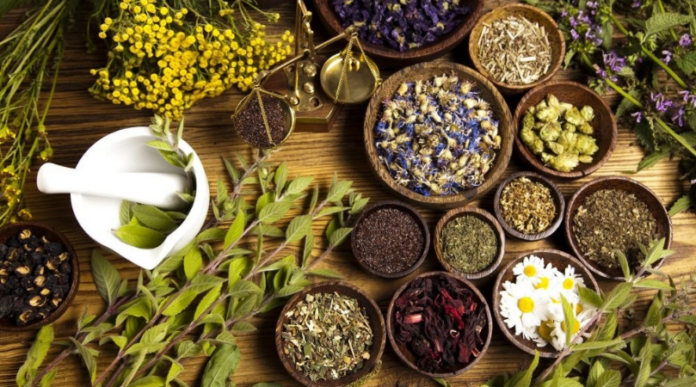By the Editor
Practice and research for curing various ailments afflicting humans are no longer limited only to modern health system which was introduced by colonial powers, but also to other useful alternative medicines like Ayurveda, the ancient Indian method. This term is a part of the acronym AYUSH which signifies ancient traditional medical practices like Ayurveda, Yoga and Naturopathy, Unani, Siddha and Homeopathy. A separate Ministry of Ayush was consequently created in 2014 and within a year Government of India observed June 21, 2015 as International Yoga Day which soon gained international attraction. Ayurveda was ignored and neglected for many years but soon after gaining independence its importance was recognised and accordingly revived. Nowadays, Ayurveda is treated as complementary to Allopathy. Allopathic medicines have side effects but not Ayurvedic medicines and this is the reason patients prefer the latter and the system is gaining popularity. Homeopathy too is being accepted by an increasing number of people across the country.
After the British were well-established in the Indian sub-continent they discouraged the use of traditional medicines. In 1835, the Ayurveda College in Kolkata was closed and in its place came a modern medical college. When country achieved independence, a fresh outlook was started in the field of medicine and two decades later Ayurveda and Unani practitioners were legally recognised in 1970. A separate department was made in 1995 and renamed as AYUSH in 2003 which was remodeled into a vigorous Ministry of AYUSH in 2014. The ancient Indian practice soon gained importance throughout the world. Besides medication, side by side it advocates meditation which proved beneficial. During the last six years the number of AYUSH colleges has increased by more than 250 per cent, from 200 to 711, and the number of AYUSH hospitals is 4035. AYUSH dispensaries — about 28,000 of them — are located throughout the country. The country has at present 8 lakh AYUSH practitioners and 9,000 licensed AYUSH shops. Approximately 18 crore patients derived benefits through AYUSH facilities. Over and above, people from across the world are flocking to India to seek relief from stress and depression. Kerala, Karnataka, Tamil Nadu, Himachal Pradesh and Uttarakhand are becoming popular destinations for Ayurvedic tourism.
Homeopathy is being widely accepted in the country, including Meghalaya whose people are rushing to homeopathic clinics for treatment of various pains and diseases. Allopathic practitioners in Europe, India and some parts of Africa also turn to homeopathy in treating sick patients and hence can no longer be written off as inconsequential. The philosophy of ‘like may cure like’ was first proposed by Hippocrates, the father of ancient Greek medicine. Homeopathy emphasises treating people rather than diseases. Irrespective of medical background, medical practitioners should unitedly pool their effort in extending relief to patients.


